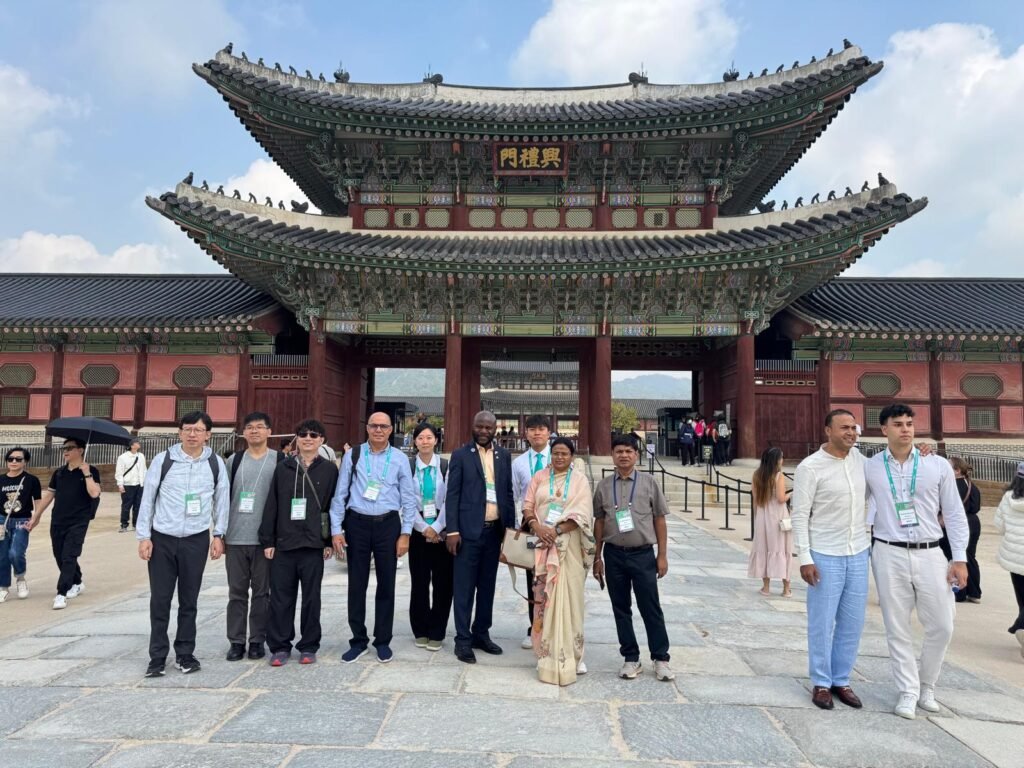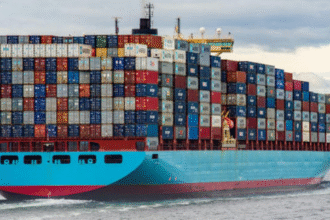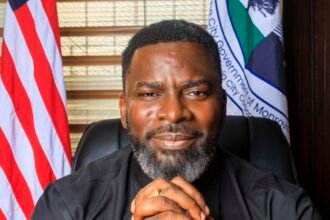A Statement from the City of Monrovia During the Seoul Smart City Week, In Seoul, South Korea
Presenter: Mr. Jones N. Williams, Deputy Mayor & City Manager, Monrovia
1. The Imperative: Defining Digital Exclusion
Good afternoon. We are here today to discuss a challenge that defines modern inequality: the Digital Divide. As the International Telecommunication Union states, “Digital inclusion is broadly defined as different strategies designed to ensure that all people have equal access, opportunities and skills to benefit from digital technologies and systems.”
In Liberia, the numbers tell a stark story:

This gap profoundly impacts Monrovia. A city that cannot fully engage digitally is a city that risks exclusion from global commerce, modern education, and effective governance. Our goal must be to close the gap between 32.4% and the potential we know we can reach.
2. Core Pillars of the Monrovia Digital Inclusion Strategy
To achieve digital transformation, Monrovia must prioritize action in three interconnected areas: Access, Literacy, and Safety.
A. Pillar I: Enhancing Access and Infrastructure (The Hardware)
The foundation of inclusion is connectivity and affordability. We must move beyond basic mobile connections to reliable, affordable broadband.
- Prioritizing Infrastructure Funding: We must allocate dedicated municipal funds and seek international partnerships to expand high-speed fiber networks and boost cellular data capacity, prioritizing underserved neighborhoods first.
- Affordable Device Programs: Launching initiatives (potentially in partnership with the private sector or NGOs) to provide subsidized or low-cost internet-enabled devices (laptops, tablets) to vulnerable households and students.
- Public Access Points: Establishing free, reliable Wi-Fi hotspots in key public areas, libraries, community centers, and municipal hubs to ensure basic access for all citizens who may lack home connectivity.
B. Pillar II: Championing Digital Literacy (The Skills)
Access to the internet is meaningless without the skills to use it safely and productively. Digital literacy must be treated as a fundamental public service.
- Comprehensive Training Programs: Developing standardized curriculum for all age groups, focusing on basic computer skills, online business tools, and accessing e-governance services.
- Integration with Education: Ensuring that digital skills and technology use are fully embedded into the curricula of every school within our municipality, preparing our youth for the future economy.
- Workforce Readiness: Partnering with vocational schools to offer specialized training in coding, data management, and the ethical use of digital tools, creating sustainable, high-value jobs.
C. Pillar III: Ensuring Digital Safety and Governance (The Policy)
As connectivity grows, so do the risks—online abuse, cyberbullying, misinformation, and the unregulated use of Artificial Intelligence. Our digital strategy must be proactive and protective.
- E-Governance Adoption: Accelerating the transition of municipal services online. This includes secure platforms for tax payment, permit applications, and public feedback, making government more transparent and efficient.
- Cyber Safety and Awareness: Launching public campaigns focused on mitigating digital risks, especially concerning misinformation and cyberbullying, targeting parents, educators, and young people.
- Developing AI Policies:Â We must not overlook the rise of Artificial Intelligence. Monrovia must craft policies that address the ethical and safe integration of AI tools within municipal operations and public life, ensuring that these powerful tools support, and do not displace, our citizens.
3. The Transformative Impact on Monrovia
Bridging the digital divide is not merely a technical goal; it is a catalyst for national development and local prosperity. By executing this strategy, we will:
- Strengthen E-Governance: Achieve higher levels of transparency and efficiency, allowing citizens to interact seamlessly with their city government.
- Secure Digital Financing: Facilitate access to local and global digital financial markets, bolstering commerce and entrepreneurship within the city.
- Boost Education: Provide students with the tools and resources necessary to compete globally, improving educational outcomes.
- Create Sustainable Jobs: Drive economic growth by fostering a digitally literate workforce prepared for the demands of the 21st-century economy.
Conclusion
The low 32.4% penetration rate is a challenge, but it is also an opportunity. It is incumbent upon our municipal administration to adopt transformative, pragmatic digital strategies that not only curb digital abuse but champion inclusive growth.
By prioritizing funding for infrastructure, mandating digital literacy training, and implementing robust safety policies, Monrovia can lead Liberia into a digitally inclusive future, securing prosperity for all its residents.
Thank you. I now welcome your questions by email or by direct chiming these strategic pillars.











